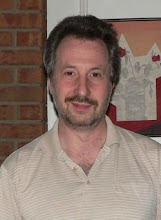Today we will visit the young San Jose backup goalie Thomas Greiss who according to the Sharks management opinion should be an important part of the team reconstruction.

Thomas Greiss was born January 29, 1986 in Cologne (Koln), Germany. The third round, 94th overall selection of the San Jose Sharks in the 2004 NHL Entry Draft, Greiss honed his skills in his homeland prior to his arrival in North America.
A calm mannered netminder, Greiss made his North American debut between the pipes of the Sharks' AHL affiliate in Worcester. That season, Greiss posted a respectable 25-15-2 record in the AHL and was assigned to the ECHL for three games. The following season Greiss returned to Worcester and managed to make his NHL debut on January 13, 2007.
Internationally, Greiss has represented Germany at numerous junior tournaments and most notably, the 2006 Winter Olympics.
Cologne (German: Köln) is Germany's fourth-largest city (after Berlin, Hamburg and Munich), and is the largest city both in the German Federal State of North Rhine-Westphalia and within the Rhine-Ruhr Metropolitan Area, one of the major European metropolitan areas with more than ten million inhabitants. It is one of the oldest cities in Germany, having been founded by the Romans in the year 38 BC.

Cologne lies on the River Rhine. The city's famous Cologne Cathedral (Kölner Dom) is the seat of the Roman Catholic Archbishop of Cologne. The University of Cologne (Universität zu Köln) is one of Europe's oldest universities.
Cologne is a major cultural center of the Rhineland and has a vibrant arts scene. Cologne is home to more than 30 museums and hundreds of galleries. Exhibitions range from local ancient Roman archeological sites to contemporary graphics and sculpture. The city's Trade Fair Grounds are host to a number of trade shows such as the Art Cologne Fair, the International Furniture Fair (IMM) and the Photokina. Cologne is also well-known for its celebration of Cologne Carnival, the annual reggae summerjam, and the gay/lesbian pride festival Christopher Street Day (CSD) (Hm..not exactly the hockey theme, sorry, people..).
Within Germany, Cologne is known as an important media center. Several radio and television stations, including Westdeutscher Rundfunk (WDR), RTL and VOX, have their headquarters in the city. Both Pro7 and Sat.1 produce TV shows in Cologne as well. Further, the city hosts the Cologne Comedy Festival (That's better, isn't it?), which is considered to be the largest comedy festival in mainland Europe.
In 2005 Cologne hosted the 20th Roman Catholic World Youth Day with Pope Benedict XVI.

Culture
Cologne has several museums of many kinds. The famous Romano-Germanic Museum features art and architecture from the city's distant past (also see landmarks). Several orchestras are active in the city, among them the Gürzenich Orchestra and Musica Antiqua Köln, as well as several choirs, including the WDR Rundfunkchor Köln. Cologne was also an important centre of electronic music in the 1950s (Studio für elektronische Musik, Karlheinz Stockhausen) and again from the 90s onward. The public radio and TV station WDR was involved in promoting musical movements such as Krautrock in the 70s. There are several centers of nightlife, among them the Kwartier Latäng (the student quarter around the Zülpicher Straße) and the nightclub-studded areas around the Friesenplatz and Rudolfplatz.
The large annual literary festival Lit.Cologne features regional and international authors. The main literary figure connected to Cologne is writer Heinrich Böll, winner of the Nobel Prize for Literature.
Cologne is well-known for its beer, called Kölsch. Kölsch is also the name of the local dialect. This has led to the common joke of Kölsch being the only language one can drink.

Cologne is also famous for Eau de Cologne (Kölnisch Wasser). At the beginning of the 18th century, Italian expatriate Johann Maria Farina created a new fragrance and named it after his hometown Cologne, Eau de Cologne (Water of Cologne). In the course of the 18th century the fragrance became increasingly popular. Eventually, Cologne merchant Wilhelm Mülhens secured the name Farina, which at that time had become a household name for Eau de Cologne, under contract and opened a small factory at Cologne's Glockengasse. In later years, and under pressure from court battles, his grandson Ferdinand Mülhens chose a new name for the firm and their product. It was the house number that was given to the factory at Glockengasse during French occupation of the Rhineland in the early 19th century, number 4711. In 1994, the Mülhens family sold their company to German Wella corporation. In 2003 Procter & Gamble took over Wella. Today, original Eau de Cologne still is produced in Cologne by both the Farina family (Farina gegenüber since 1709), currently in the eighth generation, and by Mäurer and Wirtz who bought the 4711 brand in December 2006
Carnival
Cologne carnival is one of the biggest street festivals in Europe. In Cologne, the carnival season officially starts on 11 November at 11 minutes past 11 a.m. with the proclamation of the new Carnival Season, and continues until Ash Wednesday. But the so-called "Tolle Tage" (mad days) don't start until Weiberfastnacht (Women's Carnival) or, in dialect, Wieverfastelovend (Thursday before Ash Wednesday), which is the beginning of the street carnival. Hundreds of thousands of visitors flock to Cologne during this time. Generally, around a million people are celebrating in the streets on the Thursday before Ash Wednesday.
Sports
A 2006 FIFA World Cup venue, The RheinEnergieStadion, hosts both the city's football team "1. FC Köln" which competes in the Bundesliga, and the American football Cologne Centurions who played in the now defunct NFL Europa.

The city is also home of the hockey team Kölner Haie (Cologne Sharks), in the highest hockey league in Germany, the DEL. They are based at the Lanxess Arena.
Founded in 1972 Cologne is the most successful team in modern german hockey history. The team has uninterruptedly played at the highest level since 1973, winning eight championships. The team has the biggest arena in de DEL and is the second best drawing team in Europa. Best period in history was the 1980s when Cologne won four titles in five years. The team was a founding member of the DEL in 1994 and is the all time points leader in the league. Two championships and three places in the final confirm its strength over the last decade.
























Thanks for the insight I'm visiting a German friend there soon and am very excited!
ReplyDelete